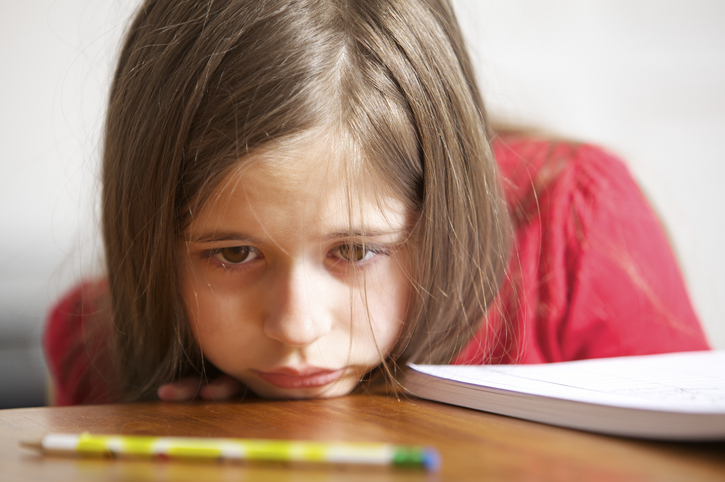 Giftedness means that a person, usually a child, has abilities that are significantly developed beyond those of their peers. For example, a gifted four-year-old may be able to read or write. A gifted seven-year-old might be able to compose simple melodies, and a gifted fifteen-year-old might write their first symphony.
Giftedness means that a person, usually a child, has abilities that are significantly developed beyond those of their peers. For example, a gifted four-year-old may be able to read or write. A gifted seven-year-old might be able to compose simple melodies, and a gifted fifteen-year-old might write their first symphony.
Giftedness can open new doors. A gifted child might skip grades, be accepted into a prestigious program, or cultivate skills their parents never thought possible. Yet giftedness can also offer challenges for parents, children, and educators. A gifted child may have social difficulties or require specialized education.
Even though giftedness is not a mental health diagnosis, families with gifted children may benefit from therapy. A therapist can support gifted children and help parents address their child’s needs.
What is Giftedness?
Educational institutions often have different definitions of giftedness. In some schools, students are only considered gifted if they achieve high scores on standardized tests. Others measure giftedness based on a student’s classroom performance.
Organizations such as the American Psychological Association (APA) or the National Association for Gifted Children (NAGC) often focus on domains rather than grades or test scores. A domain is any structured activity or skill set that a culture values, such as art or science. The NAGC defines giftedness as performance or achievement in the top 10% or better in one or more domains. Both the APA and the NAGC emphasize that giftedness includes talents across many domains, not just academic talent.
No single definition of giftedness applies to all gifted people. Some researchers question the very notion of giftedness, arguing that it is the product of social privilege or practice rather than an innate talent. According to this theory, every child could be gifted in at least some areas with the right support.
Myths about Giftedness
Popular culture often depicts giftedness as a golden ticket to lifelong success. However, the reality tends to be more complicated.
- Myth: A gifted child will be talented in everything they put their mind to.
- Truth: A person may be gifted in one domain and have typical or subpar skill in another area. For example, a brilliant writer might struggle to pass their science class.
- Myth: Gifted children will always do well in school.
- Truth: Gifted children have many different relationships with school. Some kids prioritize their grades and excel. Others lack motivation because the school material bores them, or they become distracted by more engaging pursuits. Still other students wish to do well, but their fears about failure sabotage them.
- Myth: Gifted children are more serious and mature than other kids.
- Truth: Gifted kids have many different personalities. They can be goofy, quiet, impulsive, anxious, and so on. Also, possessing advanced skills does not mean a child is emotionally or developmentally older. An eight-year-old who can do calculus will likely still need reminders to do their chores.
- Myth: Once a child has been labeled gifted or ungifted, that designation is permanent.
- Truth: Giftedness may change or evolve with time. A child who reads very early will not necessarily have literary talents as an adult. Meanwhile, a child who struggles in preschool may grow into a gifted middle schooler. Plus, since there are so many definitions of giftedness, a child that may qualify for one program may not be accepted in another.
Discrimination in Gifted Programs
Institutional barriers may cause marginalized children to go unrecognized. For example, a child growing up in a poor neighborhood may attend a school with few or no resources for identifying giftedness. Some parents may not have the time or knowledge to advocate for their child’s needs. If a child has a disability or behavioral issues, they may be even less likely to be admitted into a program.
When gifted programs require a nomination from parents or teachers, prejudice can also affect a child’s admittance. In a study by the National Bureau of Economic Research, kids were less likely to be referred to a gifted program if they were:
- Black or Hispanic
- Female
- English language learners
- Participants in a free or reduced-price lunch program
That same study monitored the school district as it enacted a universal screening program for giftedness. When all kids were tested, the total percentage of kids recognized as gifted rose from 3% to 5%. The boost was even more drastic among racial and ethnic minorities. The number of qualified black students rose 80%, and the number of qualified Hispanic students rose 130%. The standards for the test were the same as when teachers acted as gatekeepers – all that changed was who got to take the test.
Twice-Exceptional Children
 Some gifted children also have learning disabilities. These “twice-exceptional” children may need significant support to manage their different needs. However, it is common for these children to be misidentified.
Some gifted children also have learning disabilities. These “twice-exceptional” children may need significant support to manage their different needs. However, it is common for these children to be misidentified.
Some gifted children with learning difficulties may be mistakenly labeled only with their diagnosis. For example, a child with ADHD might be extremely disruptive in the classroom, drawing attention away from their skillful mastery of music or art. It is important for parents and educators not to assume that a learning-disabled child can’t be gifted.
Other twice-exceptional children may be identified only as gifted. These kids may be able to hide their learning disabilities by using their talents to compensate. As such, they may not be diagnosed until adolescence or later. Without a diagnosis, these gifted kids may not receive the support necessary to reach their full potential.
Sometimes learning disabilities and giftedness interact with one another in a way that can make a child feel overwhelmed. Gifted children learn quickly and may be easily bored. Learning disorders can make it even harder for them to focus in the classroom or manage their emotions. A child may become frustrated when certain activities feel so much harder than others. Others may falsely label the child as “lazy” when their academic performance is inconsistent.
Twice exceptional children, like all children with learning disabilities and other special needs, are entitled to an Individualized Education Plan (IEP). Parents and educators create this plan together, then review it at least annually. An IEP should address all the child’s unique needs. For example, an autistic child who is musically gifted might attend high-level music classes but also take tests in a separate classroom to reduce distractions.
Researchers who specialize in twice-exceptional children often discourage thinking of these children as “at-risk.” This label can be stigmatizing and often places too much focus on the child’s challenges. It can also be a source of anxiety to children. Viewing these children through an “at-promise” lens can encourage parents and educators to cultivate learning strategies that help a child realize their potential.
The Challenges of Giftedness
Giftedness can come with its own challenges. For children, common issues include:
- Boredom. Gifted children may be profoundly bored in traditional academic settings. Boredom can feel intolerable to children, especially if they have other challenges such as ADHD or anxiety.
- Disruptive behavior. Gifted children who feel disengaged in class may become impatient, irritated, or confrontational. When kids lack productive outlets for their talents, they may use their gifts to misbehave.
- Perfectionism: Gifted children may hold themselves to overly high standards. They may experience extreme self-doubt or shame when they aren’t “the best” at an activity.
- Social difficulties. Some gifted children struggle to fit in with kids their age. A child who is obsessively interested in physics might not understand why their peers don’t want to do science experiments with them.
Parents of gifted kids may face challenges such as:
- Recognizing giftedness. There is no single measure of giftedness. Some children’s giftedness appears early and remains obvious. Others struggle for years before someone notices their talent.
- Needs advocacy. Parents of gifted children must first identify their child’s needs, then find ways to meet those needs. Advocating for a gifted child can be an exhausting project. Sometimes it takes several years to find the right educational program.
- Safety. Some gifted children are strongly driven to pursue their talents at all costs. This can lead to dangerous or destructive behavior. A child who loves science might experiment with electricity. A talented athlete might try to climb the wall or jump off of the roof. Supervising gifted children can feel exhausting to parents.
When properly nurtured, giftedness can offer a path to a rewarding life. For some families, however, managing giftedness can be a confusing and overwhelming task. The right therapist can help families identify strategies for supporting gifted children and working with educators. With professional help, families can optimize their child’s happiness and potential.
References:
- Baumel, J. (2016, December 19). What is an IEP? Retrieved from https://www.greatschools.org/gk/articles/what-is-an-iep
- Levy, H. O. (2017, January 4). Discrimination in gifted education must end. Education Week. Retrieved from https://www.edweek.org/ew/articles/2017/01/04/discrimination-in-gifted-education-must-end.html
- Maas, S. (2015). Who gets into gifted and talented programs? National Bureau of Economic Research Digest. Retrieved from https://www.nber.org/digest/nov15/w21519.html
- Nielsen, M. E. (2002). Gifted students with learning disabilities: Recommendations for identification and programming. Exceptionality, 10(2), 93-111. Retrieved from https://www.tandfonline.com/doi/abs/10.1207/S15327035EX1002_4
- Osborn, J. (2001). Issues in educating exceptionally gifted students. Retrieved from https://www.davidsongifted.org/Search-Database/entry/A10208
- Redefining giftedness for a new century: Shifting the paradigm [PDF]. (2010). National Association for Gifted Children. Retrieved from http://www.nagc.org/sites/default/files/Position%20Statement/Redefining%20Giftedness%20for%20a%20New%20Century.pdf
- Subotnik, R. F., Olszewski-Kubilius, P., & Worrell, F. C. (2011). Rethinking giftedness and gifted education: A proposed direction forward based on psychological science. Psychological Science in the Public Interest, 12(1), 3-54. Retrieved from https://www.apa.org/ed/schools/gifted/rethinking-giftedness.pdf
- Twice-exceptional students. (n.d.) Retrieved from https://www.nagc.org/twice-exceptional-students

